Special Edition of Policy News Roundup: Commemorating the 100th Anniversary of International Women’s Day

Courtesy of IWD
International Women’s Day has been observed since in the early 1900’s, a time of great expansion and turbulence in the industrialized world that saw booming population growth and the rise of radical ideologies. In 1908, women’s oppression and inequality was spurring women to become more vocal and active in campaigning for change. 15,000 women marched through New York City demanding shorter hours, better pay and voting rights. In 1909, the Socialist Party of America declared the first National Woman’s Day (NWD) and it was to be observed across the United States on February 28. Women continued to celebrate NWD on the last Sunday of February until 1913 when IWD was transferred to March 8.
IWD is now an official holiday in China, Armenia, Russia, Azerbaijan, Belarus, Bulgaria, Kazakhstan, Kyrgyzstan, Macedonia, Moldova, Mongolia, Tajikistan, Ukraine, Uzbekistan and Vietnam. The tradition sees men honoring their mothers, wives, girlfriends, colleagues, etc with flowers and small gifts. In some countries IWD has the equivalent status of Mother’s Day where children give small presents to their mothers and grandmothers.
President Obama gives recognition to International Women’s Day
Crediting their role in the American story, President Barack Obama on Monday praised the nation’s “daring, indomitable” women — including the one-time political rival who is now his secretary of state. Obama praised Clinton for her long-standing work on women’s rights. Furthermore, President Obama said, “we’re doing all of this not only because promoting women’s empowerment is one of the best ways to promote economic development and economic success. We are doing it because it’s the right thing to do. I say that not only as a president, but also as the father of two daughters, as a son and a grandson, and as a husband.”
This week, Global Washington would like to honor International Women’s Day by showcasing our members that are advocating women’s and girl’s rights around the world:
One in Three Women
One in Three Women Campaign has a bold vision: A World Where Women and Girls Are Safe
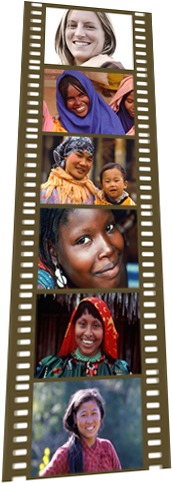
Courtesy of Americans for UNFPA
from Violence in Their Homes and Communities. One in Three Women is a simple yet powerful message. It is the statistic used in the 2003 United Nations Women’s Development Fund’s (UNIFEM) report on violence against women worldwide. One in Three Women in the world will be raped, beaten, sexually coerced, trafficked or otherwise abused in her lifetime.
One in Three Women brings attention to a long-running pandemic that is a culturally ingrained oppression. The organization is about the prevalence of violence against women globally; that prevalence is the campaign cornerstone. The United Nations Women’s Development Fund (UNIFEM) firmly calls for more governmental intervention against the global problem of violence against women. As the longest, most pervasive and one of most dangerous forms of oppression, gender violence continues at an alarming rate. One in Three Women globally will be affected by violence because of her gender.
Americans for UNFPA
UNFPA, the United Nations Population Fund, is an international development agency that promotes the right of every woman, man and child to enjoy a life of health and equal opportunity. UNFPA supports countries in using population data for policies and programs to reduce poverty and to ensure that every pregnancy is wanted, every birth is safe, every young person is free of HIV/AIDS, and every girl and woman is treated with dignity and respect. They build moral, political and financial support within the United States for UNFPA. UNFPA, the United Nations Population Fund, provides women’s health and promotes the rights of women in 150 countries. It is the largest international source of such assistance. Americans for UNFPA’s outreach has generated tens of thousands of supporters for global women’s health and channeled their passion into advocacy on behalf of UNFPA’s program.
Bahia Street
Bahia Street breaks cycles of poverty and violence through quality education for impoverished girls and young women living in Salvador, Brazil. Globally, Bahia Street brings people from all backgrounds together for discussions and actions that promote equality. Founded in 1997, Bahia Street is registered as a non-profit organization in Brazil, the United States, and the United Kingdom. The infrastructure of Bahia Street is a partnership that combines the knowledge and dedication of a grassroots organization with the accountability and financial strength of an international one.
The Bo M. Karlsson Foundation
The Bo M. Karlsson Foundation believes that by helping one individual at a time, they can make a positive change in the world and have a meaningful connection with that individual. The women they support awaken us to our global connectivity and the universal desire for peace and goodwill. The rippling effect is monumental. As the Bo M. Karlsson Foundation support women in their educational pursuits, their desire is that this also helps them build character and strength, making them self-reliant, confident, and productive citizens in their own country.
Mona Foundation
Mona Foundation is a 501 (c) (3) nonprofit organization dedicated to supporting grassroots educational initiatives and raising the status of women and girls worldwide. Mona Foundation serves its mission through development of human resources, promoting service learning and volunteerism, bridging the digital divide and supporting their adopted projects through financial grants and material resources that these projects need for their everyday operation or for their development plans.
Smiles Forever
Smiles Forever is an American and Bolivian non-profit foundation that works to give opportunity to young indigenous women in Bolivia and to improve the overall oral health of the communities in which they live. The students of Smiles Forever are taught the importance of serving their communities through community service work, which represents a large part of Smiles Forever’s educational program. Their students are also leading the way in introducing the profession of dental hygiene to Bolivia, where as of yet it does not exist.
Heal Africa
HEAL Africa’s hospital and community development work address the root causes of illness and poverty for the people of eastern Democratic Republic of Congo. The hospital and the 28 women’s houses in Maniema and North Kivu have provided a safe place for many victims of the war, and have been a motor for combating poverty and promoting community cohesion over the past 14 years.
Women’s Enterprises International
Women’s Enterprises International is dedicated to creating opportunities that equip women in developing countries to overcome poverty and transform their lives and communities. They do this by partnering with indigenous women’s groups in development projects that provide solutions to three systemic causes of poverty; lack of access to water, lack of access to business capital and limited access to education for girls.
USAID Policy News:
USAID Sends Assistance in Response to Chile Earthquake
In response to the earthquake in Chile the U.S. Agency for International Development (USAID) has provided $1 million to the International Federation of the Red Cross (IFRC), to help with emergency assistance needs. In addition, USAID is providing shelter material and mobile water treatment units to assist the people of Chile.
USAID is asking Congress for supplemental emergency funding for disaster relief, after much of its International Disaster Assistance fund has been spent on Haiti.
USAID Administrator Rajiv Shah testified before Congress last week to defend the President’s budget request for international development. The Center for Global Development analyzes his testimony and assesses his first couple of months on the job.
FY2011 International Affairs Budget Makes Progress
Three weeks ago, Global Washington posted a blog summarizing the Fiscal Year 2011 International Affairs Budget request. Today, we are pleased to report that the budget is moving forward as Secretary of State Hillary Clinton testified before four Congressional Committees in the House of Representatives and the Senate.
In her testimony, Secretary Clinton highlighted the main priorities in this year’s budget, as we reported previously: increasing civilian capacity in the “frontline states,” and renewed investments in health, food security, and climate change. In focusing on these priorities, Secretary Clinton argued the aim of the United States “is not to create dependency, but to help our partners devise solutions they can sustain over the long term.”
Secretary Clinton also brought attention to three other aspects of the FY 2011 budget. First, “as the key drivers of economic and social progress in the developing world,” women and girls will be a focal point in American foreign policy in an effort to extend equality and opportunity to all.
An expansion of the Foreign Service of the State Department and USAID will also be a central goal of this budget. In an effort to curb the United States’ reliance on contractors in the implementation of foreign policy goals, the budget will increase the State Department’s Foreign Service by 410 and USAID’s by 200.
The FY 2011 International Affairs Budget would also seek to focus on results and efficiency in implementing United States foreign policy and national security goals. The Quadrennial Diplomacy and Development review, which should be completed at the end of this summer, gives the United States the “opportunity to define the capabilities we need and to match resources with priorities.” In line with the goals of the QDDR, Secretary Clinton went on to say “this budget aligns our investments with the strategic imperatives of our time.”
The International Affairs Budget was also received well by congressional leaders during the four hearings. Senator John Kerry, chairman of the Senate Foreign Relations Committee hailed the budget as “the backbone of our civilian efforts worldwide,” believing it “secures the tools we need for an effective foreign policy.” Congressman Howard Berman, chairman of the House Foreign Affairs Committee committed himself and, with hopes, the rest of his committee to “do everything we can to maintain the overall funding level” of the International Affairs Budget.
To read Secretary Clinton’s transcripts, as well as the transcripts of the Members of Congress and video of the hearings, please refer to the Senate Foreign Relations Committee, House Foreign Affairs Committee, Senate Appropriations Subcommittee on State, Foreign Operations, and the House Appropriations Subcommittee on State, Foreign Operations. For more information on the Fiscal Year 2011 International Affairs Budget, please visit USGLC’s budget center and Global Washington’s blog.
Global Education News – March 3, 2010
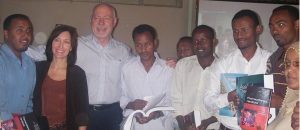
Ethiopian pharmacy trainees show off the textbooks that UW pharmacy professors delivered on behalf of UW pharmacy students, who raised the funds to donate the books. Refer to article below.
University of Washington:
Teams bring sustainable solutions to address poverty to UW in annual international competition
University of Washington students compete in the sixth annual Global Social Entrepreneurship Competition (GSEC) to pitch business plans for commercially sustainable solutions that address issues of poverty in the developing world. Student teams from around the world will be in Seattle to compete and their plans will be judged on three criteria: effect on the quality of life and poverty alleviation in the developing economies; financial sustainability; and, feasibility of implementation.
Pharmacist’s role in patient care advanced in Ethiopia
UW pharmacy professor Andy Stergachis, and UW pharmacy students conducted five days of training for almost 40 pharmacy and health care representatives — including faculty members, students and deans from the four Ethiopian schools of pharmacy, government officials from Ethiopia’s equivalent of the Food and Drug Administration, and the president of the Ethiopian Pharmacy Association. They also donated more than $1,100 worth of textbooks to the Ethiopian pharmacy students, thanks to a fundraiser that UW pharmacy students had organized back at home. Stergachis is collaborating with colleagues from the UW and other institutions to implement various programs — from drug safety initiatives to medication-access programs — in multiple developing nations, including Ethiopia, Namibia, Rwanda and Vietnam.
Seattle University:
Seattle University’s “Hoops for Haiti” benefit raises $3,600 for relief efforts
Coach Cameron Dollar called on the Seattle University community to help Haiti and they responded in a big way at Saturday’s men’s basketball game. Fans at the “Hoops for Haiti” benefit game donated more than $3,600 to support the work of Catholic Relief Services (CRS) in Haiti.
Washington State University:
Director of the Center on U.S.-China Relations for the Asia Society to lecture at WSU Pullman
Famous lecturer concerning US-China, Schell, a Fellow at the East Asian Institute at Columbia University and the director of the Center on U.S.-China Relations for the Asia Society, will present a public lecture titled “Is China’s New Development Model More Competitive than Our Own?”
Other Global Education News:
Symposium: Global awareness an increasingly important skill
Educators need to rethink how they look at the global community, said Francesc Pedró during the ninth annual Consortium for School Networking (CoSN) International Symposium: Do they view other countries as competition, or as an opportunity for collaboration?
A Chance to Reinvigorate the Global Community Around Education
2010 has all the makings of being “The Year of Global Education.” Important events throughout the year include the G8 chairmanship by Canada, a country that historically has been a champion of global education; the FIFA partnership with the 1GOAL campaign, which endeavors to ensure that education for children in Africa and throughout the developing world will be the lasting legacy of this summer’s World Cup in South Africa; news that South African President Zuma will invite fellow heads of state to commit to coordinated action on education on the eve of the World Cup; the UN secretary-general’s Millennium Development Goals (MDGs). Review Summit () prior to the UN General Assembly in September, which will assess the reality of achieving education for all; and South Korea deciding that core development issues including education must be part of the newly-empowered G20’s top-line agenda for November.
Study shows global education is key to reducing apathy
DEA, a coalition which promotes global learning, brings together development and environment NGOs, as well as education NGOs, conducted a study that suggests people who learn about global issues feel more empowered to tackle them, rather than being overwhelmed by the extent of the problems. DEA’s Chief Executive, Hetan Shah said, “learning about the wider world leads to people who are more open-minded towards each other in the UK, but also encourages care for the rest of the world.” Their full report will be available online here.
Initiative for Global Development publishes new report on foreign aid reform
US-based business alliance Initiative for Global Development published a report that draws connections between the economic growth of developing country markets and the economic health of the U.S. The organization also observed how foreign-assisted programs on health, education and poverty eradication in developing countries helped uplift the quality of lives in the world’s poorer states, eventually creating markets for US’s export industry.
The Gap in the Secular Discourse
In Nicholas Kristof’s most recent column, “Learning from the Sin of Sodom,” he contends liberal secularists in the development community need to forsake their prejudice against evangelicals and understand the constructive role faith-based organizations play in foreign aid. By focusing on aid programs aimed at stemming the spread of infectious diseases, curbing human trafficking, and distributing food to the poor, Kristof argues that “evangelicals have become the new internationalists.”
To see a prime example of the positive impact evangelicals can have in development, one must look no further than Global Washington’s member organization World Vision. As the largest relief organization in the United States, World Vision fields 40,000 workers in almost 100 countries. Noting their Christian values as inspiration, World Vision works in the poorest communities to alleviate poverty and promote peace and justice regardless of race, religion, or gender.
The President of World Vision, Richard Stearns illustrates this sentiment of faith-driven aid in his book “The Hole in Our Gospel.” In the book, Mr. Stearns asserts that the values of Christianity are not inconsistent with giving aid, but some evangelicals have been too concerned with sexual morality and proselytizing to truly make an impact on poverty. Indeed, organizations such as World Vision forbid activities aimed at attracting converts to Christianity, exemplifying the constructive nature of some evangelicals’ aid work.
Ultimately, liberal secularists need to abandon their assault on faith-based development programs and accept the evangelicals’ valuable role in international development. That way, as Kristof argues, “we all might succeed together in making greater progress against common enemies of humanity.”
To learn more about the contributions of religion in development please visit the websites of World Vision and Global Washington’s other faith-based member organizations Habitat for Humanity of Seattle/South King County, Medical Teams International, Agros International, and Breakthrough Partners.
Policy News Roundup – March 2, 2010

Apple details labor violations at its suppliers. Refer to article below. Photo courtesy of Apple Inc.
Foreign Aid:
Don’t miss the hearing on USAID and the FY2011 Budget Request this Wednesday, March 3rd, which will be webcast from the committee website.
The richest donor countries are not meeting the commitment made collectively at Gleneagles in 2005: to deliver $130 billion in aid by 2010. But aid has increased “remarkably,” according to Brookings, and the international commitment made 5 years ago to deliver more aid has helped.
See the OECD forecast of aid in 2010 – some countries will surpass their individual Gleneagles commitments in 2010, including Sweden, Denmark, Spain, and the UK. Among others, France and Germany will fall short. The United States made a less ambitious commitment to double aid to Africa, which it will reach in 2010.
Author Nicholas Kristof argues that “if secular liberals can give up some of their snootiness, and if evangelicals can retire some of their sanctimony, then we all might succeed together in making greater progress against common enemies of humanity, like illiteracy, human trafficking and maternal mortality.”
Congressman Sam Farr (Colombia 64-66) has released a bipartisan Dear Colleague letter urging a $465 million increase in appropriations for Peace Corps in fiscal year 2011. Ask your representative to sign on to a Dear Colleague letter in support of the Peace Corps.
Click here for a list of Representatives who have already signed up.
Labor Rights Violations:
The Washington Fair Trade Coalition reports: As earthquakes continue to devastate the people of Haiti, many people are learning for the first time how this country has been politically and economically exploited for centuries. The people of Haiti have come to recognize that working in sweatshop factories for Disney and the Gap is not the way to develop their country and education their children.
Apple Inc. outlined in a company report on audits of 102 supplier facilities conducted in 2009 said it found more than a dozen serious violations of labor laws or Apple’s own rules at its suppliers that needed immediate correction.
Click here for Apple’s 2010 Supplier Responsibility progress report.
Do you know of any products being made overseas with child labor or forced labor? Report it to the US Department of Labor by April 9th for inclusion in their report to Congress and the President. http://www.dol.gov/opa/media/press/ilab/ILAB20100134.htm
For statistics on labor and violations visit: http://www.ilo.org/global/lang–en/index.htm
Other Development News:
The Wall Street Journal labels their interviewees of prominent philanthropists and charity executives “philanthrocapitalists,” leaders in the worlds of business and finance, who are looking to apply the same zeal to donating money as to making it.
South African researchers claim treating tuberculosis and the AIDS virus simultaneously saves more than twice as many lives compared with attacking TB first. Dual treatment pays off with a 56 percent reduction in deaths from all causes, the large South African study published in the New England Journal of Medicine showed.
A Swedish entrepreneur is trying to market and sell a biodegradable plastic bag that acts as a single-use toilet for urban slums in the developing world. The entrepreneur successfully tested the bags in Kenya and India and says he plans to mass produce the bag this summer, selling them for two to three pennies each, comparable to the price of a plastic bag. According to UN figures, about 40 percent of the earth’s population does not have access to a toilet, which contributes to 1.5 million children worldwide who die yearly, largely because of poor sanitation and hygiene.
“The responsibility for the current difficulties in China- U.S. relations goes completely to the U.S. side”
http://www.businessweek.com/news/2010-03-02/china-says-u-s-entirely-to-blame-for-strained-ties-update1-.html
Does financial innovation boost economic growth? Ross Levine argues yes, and Joseph Stiglitz argues no. Read, vote, and contribute to the lively debate at the economist.com.
The Doha talks remain deadlocked and many countries blame the United States. The United States countered criticism by calling for better offers from advanced developing countries in service sectors such as finance, information and communication technology, distribution, and energy.
Global Education News – February 24, 2010
Posted on February 24, 2010.
Earthquake in Haiti: Effects on Education
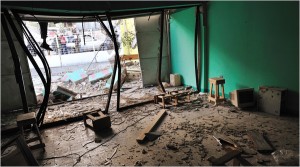
The Center of University and Professional Learning in Port-au-Prince was destroyed by the Jan. 12 earthquake. Courtesy of New York Times
It has been over a month since the earthquake in Haiti. Below, we have collected various resources to gain insight into the state of education in Haiti.
Education was also leveled by quake in Haiti
The NY Times reports on a student who was in class at the State University of Haiti when the earthquake hit, as well as the many other educational facilities, universities, and schools that were affected by the earthquake. The article depicts the negative impact that the earthquake has had on the current and future leaders and students of Haiti.
Update on Haiti’s Education System after the Earthquake
This blog provides a quick update on the current education situation in Haiti from Bob Prouty, head of the Education for All: Fast Track Initiative Secretariat. The situation is quite dire; many Ministry of Education officers were killed during the quake.
Haiti Education Foundation (HEF) Update
Founded in 1981, HEF began with one school and now reaches over 12, 040 students in over 34 elementary schools, 7 high schools, and a vocational school. The Haiti Education Foundation is a Christian education organization providing learning opportunities to Haitian children in Haiti. Many of HEF’s schools were damaged during the earthquake, and the organization is currently organizing to rebuild their schools and fundraising to repair other schools where enough funds many not be available.
Haitian Education System ‘totally collapsed’
This article by AsiaONE includes statistics as well as personal stories of those affected by the damage and destruction of schools by the earthquake. The Minister of Education also shares his thoughts on the crisis.
Earthquake Update
H.E.L.P., which is Haiti’s largest university scholarship program, is a non-profit organization promoting the best students in Haiti with scholarships and opportunities to excel in their individual fields. It too suffered greatly because of the earthquake. H.E.L.P. has set up a temporary headquarters and has found that many of the students whom they were providing scholarships for have been found in collapsed buildings.
Hope for Haiti
Founded in 1990, Hope for Haiti acknowledges that Haiti is one of the poorest countries, with an educational system sometimes categorized as a “failed education system.” Hope for Haiti is working to change this. In the last four weeks, they have “delivered and distributed over $20 million in supplies to the affected areas,” but have yet to comment regarding moving forward with education in light of the recent disaster.
-Submitted by Kelly Thoma
Policy News Roundup — February 23, 2010
Posted on February 23, 2010.
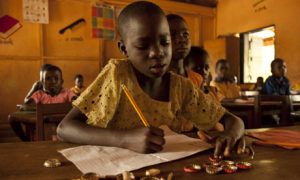
A girl uses bottle tops to count in a math lesson in Ghana. See girls' education in Ghana article below.
US Global Development Policy:
Rajiv Shah, the new USAID Administrator, will testify at the upcoming House Foreign Affairs Committee hearing March 3, 2010– U.S. Policies and Programs for Global Development: USAID and the FY 2011 Budget Request. Check this link after March 3rd for the webcast.
Can donors find a better way to deliver aid? The Center for Global Development is promoting a potential new way to disburse foreign assistance called Cash on Delivery Aid. COD Aid seeks to devise simple, results-based contracts that reward developing countries for making progress towards previously agreed goals—such as increased primary school completion rates, vaccination coverage, or access to clean water. This would increase local ownership as developing country governments would come up with their own solutions and hire consultants of their choosing, rather than the current model where donors impose solutions and consultants from outside.
In response to questions triggered by the disaster in Haiti, a PBS program interviewed development experts on foreign aid effectiveness and strategies. The program, “Making Foreign Aid Work,” included interviews with William Easterly (author of White Man’s Burden, NYU professor), David Beckmann (Bread for the World President), and Andrew Natsios (former USAID Administrator, Georgetown professor). For extended interviews click here:
Andrew Natsios extended interview
William Easterly extended interview
David Beckmann extended interview
The President’s 2011 budget request includes a fund for largely neglected health problems in developing countries. Ten countries have been named as priority recipients for support from this $200 million fund. These countries include: Bangladesh, Nepal, Kenya, Tanzania, Mali, Senegal, Benin, Malawi, Zambia, Ethiopia, Ghana, Guatemala and Honduras.
Other Development News:
After last week’s coup in Niger it faces a potentially severe food crisis. The US suspended all non-humanitarian aid to Niger including the $23 million program focusing on girls’ education and government corruption reduction.
One town is using the country’s obsession with football (ie soccer) to promote girls’ education. In Ghana, only 79% of girls finish primary school and by the time they complete junior high school just 54% of girls are still in lessons, according to the lobby group the Ghana National Education Campaign Coalition.
UNICEF Seeks to Keep Kids Out of Haiti Orphanages. Marie de la Soudiere, coordinator of the separated-children program in Haiti for UNICEF– the U.N. Children’s Fund– wants to make sure that folks like the 10 US missionaries don’t get many more chances to try reckless engagement in “rescue efforts.” The high-profile case of the 10 US missionaries who were arrested in Haiti for allegedly abducting children has raised an important issue regarding children in devastated areas such as Haiti. Subsequently, she recently initiated a campaign to register Haitian youths, who were among the world’s most vulnerable to trafficking even before the quake. The Haiti list is also designed to prevent children from being placed into Haiti’s muddled orphanages, many of which have long been sources of child trafficking.
“If you give a man a fish, he can eat for a day, but if you teach a man how to fish, he can eat for a lifetime” — Joshua Sperling, a volunteer with EWB-International
The US-founded Engineers Without Borders (EWB) has been a worldwide success in their mission of encouraging young engineers to become leaders in global development. The improvement of the living conditions of people in developing countries has been successful in developing new successful branches such as EWB-India, which has become a major volunteer organization attracting more and more students and organizations despite budget constraints. EWB-India hopes it can motivate its 1.5 million engineering students into helping solve global challenges.
Global Washington members who are involved in Engineers Without Borders chapters:
Gonzaga University, Seattle Pacific University, Seattle University, University of Washington, Washington State University, Western Washington University.
Christian Science Monitor Offers Suggestions in Haitian Reconstruction
Posted on February 19, 2010.
With the recent earthquake in Haiti and the subsequent reconstruction effort, many different models for rebuilding a nation have been suggested for Haiti. Some argue for a centralized, coordinated aid effort focused on rebuilding Haiti’s economic and social infrastructure. Others warn against the usual development approach to reconstruction, contending foreign aid is no more than a stopgap.
Robert Maguire and Robert Muggah of the Christian Science Monitor present a “middle way,” offering five suggestions for the Haitian reconstruction effort: Decentralize relief efforts, establish a national civic service corps, emphasize public-private partnerships, target capital flow to the poor, and focus on political and social inclusion through responsible investment. To read the full article, please visit the Christian Science Monitor.
Many of these suggestions are in line with Global Washington’s Principles of Aid Effectiveness: Transparency, Coordination, Local Ownership, and Targeting. To learn more about GlobalWA’s Principles of Aid Effectiveness and our suggestions for aid reform, please visit our website, and read our white paper.
Policy News Roundup
Posted on February 18, 2010.
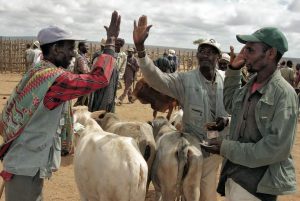
Image from the new IFPRI book Millions Fed: see below
THE FY2011 INTERNATIONAL AFFAIRS BUDGET AND US DEVELOPMENT POLICY:
Secretary Clinton will appear before the full House Committee on Foreign Affairs, for a hearing on the FY2011 International Affairs Budget and “Promoting Security through Diplomacy and Development,” on February 25.
Aid advocates seem happy with the international affairs budget request, which proposes an increase of 2.8 percent over fiscal 2010, including supplemental funding. See a summary of the international affairs budget request in the Global Washington blog.
The Initiative for Global Development has a new Policy Update on its website, which includes a paper written by IGD on the Business Case for Foreign Aid Reform. It also includes a letter written to Jim Jones and Larry Summers (co-chairs of the Presidential Study Directive on US Global Development Policy) recommending greater coherence between trade and aid policy.
The US is a strong player back on the map, according to the Ethiopian Review.
The United States is missing its opportunity to get in on the clean energy gold rush, while other countries seize the opportunity.
HAITI:
Why Not Do for Haiti Now What We’ve Already Done for Africa? Senators Ron Wyden (D-OR) and Bill Nelson (D-FL) recently introduced legislation to improve opportunities for Haiti to export to the United States. However, the proposals being floated so far do not address the fundamental problem and still lack long-term recovery ambitions.
Most experts say Haiti’s history as an aid recipient has made it a poster child for how not to administer development assistance. So it is not surprising that ordinary Haitians would be cynical about the prospects of post-earthquake aid being substantially different from the past. Despite an estimated nine billion dollars in aid over the years, Haiti remains near the bottom of global poverty and development indexes.
NGOs Ask USAID: What About Non-Haiti Programs? The UN has expressed concern that the donor community–particularly the US– has forgotten about other crises and is only focused on Haiti.
AFRICA:
Kenya has lost out on more than $270 million in funding for HIV and malaria treatment from the Global Fund on Aids, TB and Malaria.
Sudanese officials met with representatives of the U.S. Treasury Department’s Office of Foreign Assets Control (OFAC), World Bank, and the International Monetary Fund (IMF) to discuss $36 billion of debt relief and the possible cancellation of sanctions against Sudan.
OTHER GLOBAL DEVELOPMENT NEWS:
Global Washington member Agros International was featured in CATALYST Design Magazine. This article features a case study of Agros’ work in Central America, and it shows how Agros’ development model embodies the principles of a sustainable, holistic, and strategic solution to poverty.
Developing country debt loads are becoming unsustainable due to IMF and World Bank lending, and this looks like déjà vu all over again.
Millions Fed is a new book recently released by IFPRI (the International Food Policy Research Institute), which examines successes in agricultural development over the past 50 years. This book offers a counterpoint to criticisms of green revolution-type development programs, such as the Gates Foundation’s agricultural development program.
February 2010 Newsletter
Posted on February 17, 2010.
Welcome to the February 2010 issue of the Global Washington newsletter. If you would like to contact us directly, please email us.
IN THIS ISSUE
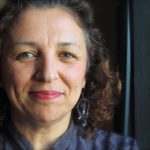
Happy Lunar New year to all of you. I hope that you have been able to enjoy the beautiful early spring.
We at Global Washington are extremely busy with starting our programming this month for 2010. In order for us to continue to do a great job as a membership organization , I would like to ask you to please take a few minutes to fill out our survey. This survey is designed to help us provide you with programs, events, and services that best fulfill your organization’s needs.
This feedback directly influences Global Washington’s strategic development agenda, and helps us identify and prioritize program and service support currently lacking in our global development community. Member organizations are greatly encouraged to give us some feedback about our work.
If you are not already a member, we are still eager to hear your thoughts on how we can engage you. Plus, one individual who fills out our survey will receive FREE REGISTRATION AT OUR 2010 CONFERENCE, and three individuals will receive a $30 gift certificate to Theo Chocolate! The survey will be open through March 3rd, 2010.
In unity,
Bookda Gheisar, Executive Director
We have launched a new feature on our website- a legislative index. It is a catalogue of global development-related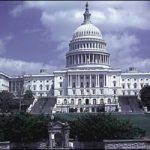 legislation in the 111th Congress broken into nine categories, including Foreign Aid Reform, Global Health, Global Education, Climate Change, and Women’s Empowerment and Human Rights. Our legislative index provides links to the official bill summary/status, one-sentence summaries of selected bills, a list of WA state cosponsors, and links to news articles and blogs where available. Visit the Global Washington legislative index on our website.
legislation in the 111th Congress broken into nine categories, including Foreign Aid Reform, Global Health, Global Education, Climate Change, and Women’s Empowerment and Human Rights. Our legislative index provides links to the official bill summary/status, one-sentence summaries of selected bills, a list of WA state cosponsors, and links to news articles and blogs where available. Visit the Global Washington legislative index on our website.
top

The Fred Hutchinson Cancer Research Center’s
Vaccine and Infectious Disease Institute (VIDI) celebrated a milestone achievement last October when it was awarded a $500,000 USAID grant to build the first U.S.-sponsored cancer clinic, research and medical-training facility in Africa. In partnership with the
Uganda Cancer Institute—Uganda’s lone cancer clinic—the new facility will be located in Kampala, on the campus of Mulago Hospital and Makerere University, one of Africa’s oldest and most reputable academic institutions.
The importance of this accomplishment goes well beyond what this new facility can do for Uganda, a country burdened with one of the highest cancer rates in the world. With a team of top international oncologists and infectious disease experts, including co-directors of the Uganda Program on Cancer and Infectious Diseases (UPCID) Dr. Corey Casper and Dr. Jackson Orem, the project is an ambitious attempt to change medical history.
With roughly 22% of the world’s cancers attributable to chronic infections, the collaboration between VIDI and the Uganda Cancer Institute could potentially lead to astounding medical breakthroughs in developing vaccines or treatments that eradicate infection-related cancers, such as Kaposi sarcoma and Burkitt lymphoma. “Of all the different causes of cancer—genetic, environmental, infectious disease, and other causes—developing vaccines that eliminate infectious disease is what we can do something about in the paradigm of eradicating cancer,” explained Dr. Casper. In Uganda, where six out of ten of the most common cancers are caused by infectious diseases, researchers encounter unique conditions for identifying new infectious causes of cancer, potentially leading to the development of new methods for prevention and treatment. 84% of the Ugandan population is infected with HHV8, a virus that can develop into Kaposi’s sarcoma. And Burkitt lymphoma, an extremely aggressive cancer associated with Epstein-Barr virus, is the most common form of childhood cancer in Central Africa. The impact of cancer in Uganda is compounded by the lack of screening and early detection tools in resource-poor countries. As a result, a cancer diagnosis is often synonymous with a death sentence.
In Uganda, where six out of ten of the most common cancers are caused by infectious diseases, researchers encounter unique conditions for identifying new infectious causes of cancer, potentially leading to the development of new methods for prevention and treatment. 84% of the Ugandan population is infected with HHV8, a virus that can develop into Kaposi’s sarcoma. And Burkitt lymphoma, an extremely aggressive cancer associated with Epstein-Barr virus, is the most common form of childhood cancer in Central Africa. The impact of cancer in Uganda is compounded by the lack of screening and early detection tools in resource-poor countries. As a result, a cancer diagnosis is often synonymous with a death sentence.
These staggering statistics reflect the massive burden of infection-related cancers on Ugandan society, but also offer a novel opportunity for putting Uganda at the center of international cancer research and innovation benefiting not only people in the emerging countries but also in the developed world as well. Uganda has maintained a national registry of cancer patients for nearly 60 years, a valuable tool for scientists conducting population-based studies. In addition, the Uganda Cancer Institute has a long history of collaborating with international organizations and has collected data for more than 200 studies, reflecting the country’s focus on medical research and education.
Prior to the Hutchinson Center’s collaboration with the Uganda Cancer Institute, the Institute had only one oncologist on staff, outdated equipment, and an overcrowded facility. The partnership has already culminated in the addition of two more oncologists, with two additional physician-scientists currently participating in fellowship programs at the Hutchinson Center, and the implementation of a faculty exchange program. The goal is to continue to train cancer-care providers and develop a world-class center for cancer treatment and research, complete with a molecular diagnostic laboratory and inpatient and outpatient care facilities. According to Dr. Casper, “In order to make a meaningful difference in Uganda, we need to build infrastructure, offer efficient care delivery, train a cadre of cancer-care providers, improve outcomes, and raise awareness of infection-related cancers.”
 Cancer kills more people than malaria, HIV/AIDS, and tuberculosis combined, yet knowledge of infection-related cancers remains relatively low on the public radar. As a result, lack of political will and public advocacy stifles funding for pathophysiology research and limits opportunities for developing prevention and treatment strategies, as well as vital diagnostic tools.
Cancer kills more people than malaria, HIV/AIDS, and tuberculosis combined, yet knowledge of infection-related cancers remains relatively low on the public radar. As a result, lack of political will and public advocacy stifles funding for pathophysiology research and limits opportunities for developing prevention and treatment strategies, as well as vital diagnostic tools.
Washington State, a hub for cutting-edge global health research, is in a unique position to raise the profile of infection-related cancers. VIDI is one of the nation’s largest infectious disease research groups, and our region’s renowned experts in infectious disease and oncology are unparalleled in the world. Increasing awareness and visibility regarding infection-related cancers provides a powerful boost to the scientific community by engaging public interest and enhancing advocacy efforts.
To learn more about the Hutchinson Center’s Vaccine and Infectious Disease Institute (VIDI) and the Uganda Cancer Institute, please follow the links below:
http://www.fhcrc.org/about/pubs/center_news/online/2009/10/Uganda.html#
http://fhcrc.org/about/ne/news/2009/10/26/uganda.html
http://med.mak.ac.ug/p.php?a=view&vID=178&p=Cancer%20Institute
For more information about the innovative work of the Uganda Program on Cancer and Infectious Diseases (UPCID), please visit:
http://www.upcid.org/
top
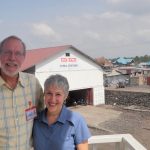
“We are the bridge for the people of Goma”
As passionate and inspiring US directors for HEAL Africa, Judy and Richard Anderson have been part of a group that decided to help establish a US organization to support the work in Goma. Based in Goma, Congo, on the border of Rwanda, HEAL Africa has been a beacon of light in eastern Congo for Congolese as they are confronted daily with rape, pillage, and destruction from militias engaging in regional war since the spillover of the Rwandan genocide in 1994. In eastern Congo, particularly the northeast in Kivu and Maniema, there is still an ongoing occupation by troops from the former Rwandan army (FDLR), various militias, and the FARDC. It’s a very complicated situation involving money, minerals and other natural resources. The end result is that the local population keeps suffering. Of the population of 7 million in N Kivu, 1.1 million are displaced and even more are displaced in S. Kivu.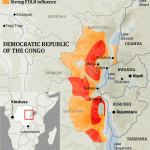
Judy Anderson, the current executive director of HEAL Africa, grew up in the Congo spending her early years there and has many fond memories, as well as challenging moments: When Judy was about ten years old a Congolese friend of hers, Maria, failed to appear in school after their holiday break. This perplexed Judy and was told by Maria’s mother that she would no longer be attending school. Confused, Judy asked her father for an explanation and to her dismay was told that Maria’s family and a prospective groom’s family decided to marry her off. Maria’s father was worried that if Maria were to receive further education her chances of marriage would be threatened because the prospective groom only had first or second grade level education and didn’t want to marry someone with more education than he had.Judy remembers clearly that day when she was told that news and cried to her Dad “it’s not fair!” She said, “on that day, I recognized that my life was completely different from hers: our futures would be so very different. That was the time it really entered my consciousness–and where the differences lay. The future, the possibilities, was defined for her by her community and they would be very different from mine.” Ever since, Judy has tried to make a difference in opportunities girls and women have, and to show them that they could have a voice.” That was a defining moment in Judy’s life and she was determined to see that Congolese women could have the same favorable circumstances she has had.
Judy’s husband, Richard, has been very involved in Africa since the 1970’s working with many organizations such as World Vision, World Relief Corp., and of course HEAL Africa where he was the executive director in 2006-2007, and currently works as the chief development officer.. He was attracted to HEAL Africa because he felt it was unique and liked the way it looked at “health” in its broad meaning. The vision of HEAL Africa is one in that health cannot be disjointed; it must be viewed in its totality. Health in Congo is community. Health is trust and cohesion. Richard was drawn to HEAL Africa because of this view as well as the organization’s ability to recognize that solutions are multi-dimensional, and must be defined and owned locally.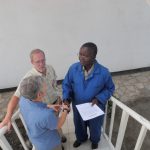
Richard recalled it was in 1994 after he helped set up aid in Goma that he first recognized a phenomenon that hate and fear in Congo transmits itself. He was changed by his experiences in Goma and came back from it with the ambition to find people of vision with aspirations for Congo and help them achieve what they see can be achieved for the people of Congo.
“It’s not just the story of the people’s horrid past,
but what they’ve stood up to do now—it’s the NOW”
Despite 16 years of instability in Goma, Judy is optimistic exactly because the people of Congo are creative, and full of hope. The young generation wants a different future. Many are committed to making it happen. HEAL Africa is a place where the best of the West can be offered to men and women. Due to HEAL Africa, the people of Congo have been reminded that they must not rely solely on external help to rebuild their nation. Judy and Richard’s goal is to foster community cohesion that reaches across dividers such as religions and villages. Violence, rape, and HIV cannot be solved by one group. Thus, they stress that the people of Congo must learn to trust each other in order to HEAL as a people.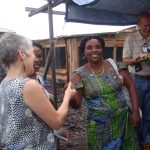
“It’s exciting to know we are investing in Congo’s future leaders”
Judy states the people of eastern Congo are internally-displaced with fragmented communities. It is the goal of HEAL Africa to build a framework of trust and bring leadership together. There is ongoing training in mediation skills, assessment and critical thinking. HEAL Africa is preparing the future leaders of Congo to choose strategies that will enable them to ultimately help the poorest and weakest in their villages.
“It’s having the long-term view that will affect this generation, and the next, and the next”
Richard and Judy would be the first ones to tell you that a “cookie-cutter” approach to foreign aid will not work, but they believe shared principles and ideas can indeed apply and be coordinated on a higher level. They felt Global Washington’s annual conference is a great opportunity to learn from other organizations in their successful strategies. HEAL Africa has been successful because it is locally-based. It was begun and is run by Congolese committed to change. Programs are developed from the field, not from offices. We at Global Washington hope to learn from Judy and Richard Anderson’s experiences with HEAL Africa by creating a foundation for a Washington-based community. A community that is capable of convening organizations to ultimately create cohesion and trust much like Judy and Richard have been diligently working towards in Goma, Congo.
For more information about HEAL Africa please visit:
http://www.HEALafrica.org/cms/
Their Action in Community philosophy:
http://www.HEALafrica.org/cms/programs/action-in-community/
To contact HEAL Africa’s US office, please send an email to: info@HEALafrica.org
For a recap of Global Washington’s conference in December 7th 2009 please visit:
https://globalwa.org/?page_id=2233
top
Africa Doesn’t Matter: How the West Has Failed the Poorest Continent and What We Can Do About It
By Giles  Bolton (2007)
Bolton (2007)
As a young idealist Giles Bolton went to Africa in the late 1990s as a British aid worker determined to do “Something Constructive” first in Kenya, then in Rwanda. Several years later and greatly disillusioned, he quit his work and focused on answering, in an accessible manner, the important questions addressed in this book: “Is Africa’s poverty all down to corruption? What actually happens to our aid money, and how do trade rules affect us at the checkout line? Can the United States and other rich countries really make a difference in Africa?”
He is successful at writing a short, concise book that is easy to read and provides clear answers to his first 2 questions with very informative discussions about the reality of what happens to the money you donated to your favorite charity or, as a tax payer, you gave your government and multilateral organizations to do development work in poor countries. The book is grounded by following the lives of two poor families, one in rural Kenya and the other in an urban setting in Democratic Republic of Congo and illustrating how their lives are, or are not, impacted by specific development and trade initiatives of western countries. By creating a fictitious “average” sub-Saharan African country, Uzima (which means “reality” in Swahili) and placing the reader in the seat of the newly elected president of this country, he clearly illustrates the impossibility of moving the country out of extreme poverty given the lack of revenues to support government programs.
The discussion on development aid highlights the fact that less than 40 cents of every aid dollar actually reaches the intended beneficiaries in the countries to which it is sent. The majority is spent on sustaining the “aid industry” of the charity organizations or rich countries. The lack of a focused outcome on reducing poverty and strengthening government systems of the recipient country, means neither the tax payer donor nor the poor benefit from the current system. The discussion of the unlevel trade rules placed before African countries (and the history of how they developed) is especially illuminating. Extraction of unprocessed natural resources from African countries and agricultural subsidies and tariffs in Europe and the US have prevented economic development in Africa. Subsidies hurt both consumers in the rich countries and poor famers in developing countries. For example, “a typical British family of four was paying around $30 more than it needs to a week because of EU agricultural subsidies, through a combination of tax and higher prices at the checkout…around $1500 per year.” Multiple studies have documented similar costs to US citizens or our subsidies and tariffs.
The 3rd question the book addresses, how can we change this situation, is not as well developed. Bolton doesn’t address micro-credit and the empowerment of women as major success stories in economic development and an escape from extreme poverty. He also does not discuss the potential positive outcomes on African economic development of regional government cooperation and improving trade within the African continent. He does place emphasis on citizen and consumer action to change policy and industry practice in Western countries but ends up apologizing for unfair practices both in aid and trade by saying that they are not intentional, just unfortunate outcomes of business as usual. For example, he says that multinational companies “are fundamentally amoral. The power of competition means they will try and do things as cheaply and effectively as possible…it is enshrined in law in most countries that a company’s duty is to its shareholders…they need to do what’s financially best for the firm.” It would have strengthened his case for citizen action if he had pointed out that this ideology is usually very short sighted and does not look at long term benefits to the country where a company does manufacturing, the people they employ, or the safety and quality of their products. This ideology of “amorality” toward trade and economic development, is the reason that citizens in both rich and poor countries need to demand corporate responsibility and real outcomes from development aid.
In spite of these deficiencies, the book is well worth reading for the educational value of the discussions on aid and trade and a clear focus on the reality facing poor families and their governments in Africa. Our Seattle RESULTS chapter sponsored a very well attended public discussion on this book in January and the engagement and discussion that ensued continued well past the official closing hour of our venue! It helped all of us understand the magnitude and direction of the tasks involved in reforming foreign aid to end extreme poverty on the globe.
Submitted by Elinor (Ellie) Graham, a retired pediatrician, who is a local RESULTS volunteer and does health work in Liberia and El Salvador.
top
- The Seattle International Foundation Announces its First Global Program Grantmaking Round of 2010 : The Seattle International Foundation is now accepting applications for its Global Program. The goal of the Global Program is to support and foster local organizations working internationally. The Foundation is interested in development projects in all regions of the world, although it has a special interest in Central America. Preference will be given to organizations based in the greater Puget Sound region and organizations based outside of Washington State are not eligible. The application deadline is March 15, 2010 and grant recipients will be announced by mid-May 2010. Click here for more information.
- Global Washington is Looking for a Part-Time Paid Intern, 5-8 Hours/Week: Are you tech savy and abound with creative social media strategies? If so, then we would love to discuss a paid internship. The Social Media Intern position is responsible for the strategic development and on-going implementation of social media communications for Global Washington. This position’s primary goal is to effectively connect Global Washington community members and promote Global Washington’s activities, framed within its mission and values. Email peter@globalwa.org for further info
- Arasu Named Associate Vice President for International Programs and Chief International Officer:
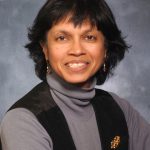 Prema Arasu has been named associate vice president for international programs and chief international officer at Washington State University. She is currently associate vice provost, Office of International Affairs at North Carolina State University, as well as the director, Global Health Initiative, and professor, Department of Molecular Biomedical Sciences, College of Veterinary Medicine. John Gardner, vice president for economic development and global engagement, said “I am very pleased that Dr. Arasu has agreed to lead international programs at Washington State University. Her extensive background in international affairs and focus on interdisciplinary scholarship makes her uniquely suited to not only build on existing strengths in IP, but also to foster even greater collaboration around issues of clean technology, sustainable development and global health.” Click here to learn more about Prema Arasu.
Prema Arasu has been named associate vice president for international programs and chief international officer at Washington State University. She is currently associate vice provost, Office of International Affairs at North Carolina State University, as well as the director, Global Health Initiative, and professor, Department of Molecular Biomedical Sciences, College of Veterinary Medicine. John Gardner, vice president for economic development and global engagement, said “I am very pleased that Dr. Arasu has agreed to lead international programs at Washington State University. Her extensive background in international affairs and focus on interdisciplinary scholarship makes her uniquely suited to not only build on existing strengths in IP, but also to foster even greater collaboration around issues of clean technology, sustainable development and global health.” Click here to learn more about Prema Arasu.
- DATE CHANGE FOR GLOBAL SOCIAL BOWLING EVENT AT THE GARAGE: Please note that the year’s first Global Social has been changed from March 3rd to March 17th. Is the competitive spirit alive in you and your organization? Do you consider yourself a better bowler than your global development counterparts? Well, now is the chance to prove it! For one night, Global Washington has decided to set aside our day job so that our members can ‘duke it out’ in the bowling alley. Join us to network and bowl with members from small and large non-profits, educational institutions, philanthropy and businesses who all share something in common: our passion for development issues on the local, national and global level. We are pleased to partner with the GARAGE on First Hill to bring you 2010’s first Global Social. Come out to connect and form bowling teams around YOUR shared region or YOUR shared issue while thinking of ways you can collaborate to overcome common challenges. Click here for more information.
top
Click here to see a full list of international development events on the Global Washington’s calendar. Upcoming events include:
Please submit your events to our calendar!
top
contacted 763
businesses, academic centers, nonprofits
and foundations in March and April 2009,
inviting them to complete a survey of their
global development activities.
Of an estimated 763 organizations, a
sampling of 122 met our definition of
global development work based on their
survey responses, including their reported
activities in the developing world and the
kind of issues they reported addressing.








 legislation in the 111th Congress broken into nine categories, including Foreign Aid Reform, Global Health, Global Education, Climate Change, and Women’s Empowerment and Human Rights. Our legislative index provides links to the official bill summary/status, one-sentence summaries of selected bills, a list of WA state cosponsors, and links to news articles and blogs where available. Visit the Global Washington
legislation in the 111th Congress broken into nine categories, including Foreign Aid Reform, Global Health, Global Education, Climate Change, and Women’s Empowerment and Human Rights. Our legislative index provides links to the official bill summary/status, one-sentence summaries of selected bills, a list of WA state cosponsors, and links to news articles and blogs where available. Visit the Global Washington  The Fred Hutchinson Cancer Research Center’s
The Fred Hutchinson Cancer Research Center’s 
 In Uganda, where six out of ten of the most common cancers are caused by infectious diseases, researchers encounter unique conditions for identifying new infectious causes of cancer, potentially leading to the development of new methods for prevention and treatment. 84% of the Ugandan population is infected with HHV8, a virus that can develop into Kaposi’s sarcoma. And Burkitt lymphoma, an extremely aggressive cancer associated with Epstein-Barr virus, is the most common form of childhood cancer in Central Africa. The impact of cancer in Uganda is compounded by the lack of screening and early detection tools in resource-poor countries. As a result, a cancer diagnosis is often synonymous with a death sentence.
In Uganda, where six out of ten of the most common cancers are caused by infectious diseases, researchers encounter unique conditions for identifying new infectious causes of cancer, potentially leading to the development of new methods for prevention and treatment. 84% of the Ugandan population is infected with HHV8, a virus that can develop into Kaposi’s sarcoma. And Burkitt lymphoma, an extremely aggressive cancer associated with Epstein-Barr virus, is the most common form of childhood cancer in Central Africa. The impact of cancer in Uganda is compounded by the lack of screening and early detection tools in resource-poor countries. As a result, a cancer diagnosis is often synonymous with a death sentence.
 Cancer kills more people than malaria, HIV/AIDS, and tuberculosis combined, yet knowledge of infection-related cancers remains relatively low on the public radar. As a result, lack of political will and public advocacy stifles funding for pathophysiology research and limits opportunities for developing prevention and treatment strategies, as well as vital diagnostic tools.
Cancer kills more people than malaria, HIV/AIDS, and tuberculosis combined, yet knowledge of infection-related cancers remains relatively low on the public radar. As a result, lack of political will and public advocacy stifles funding for pathophysiology research and limits opportunities for developing prevention and treatment strategies, as well as vital diagnostic tools.




